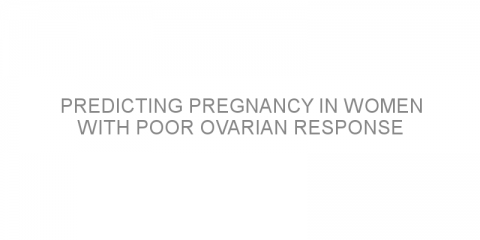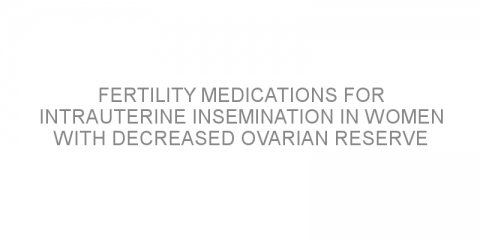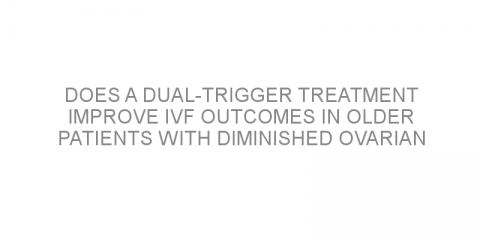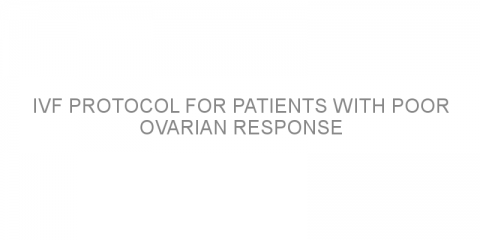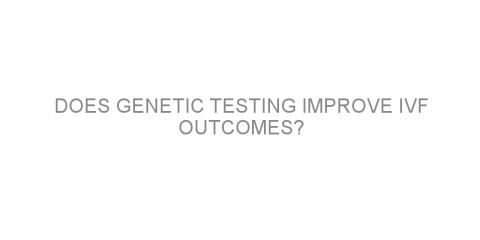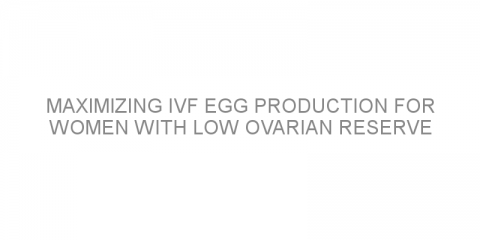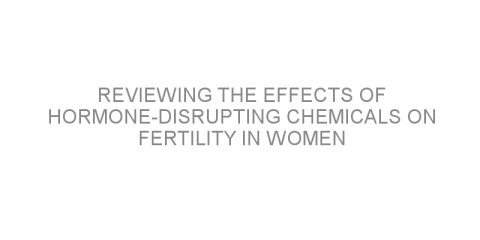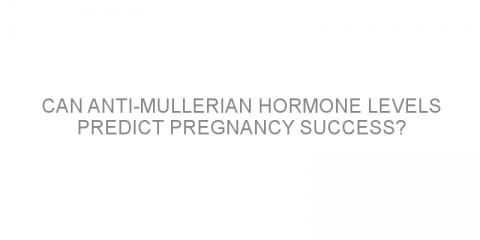In a nutshell This study looked at which factors can predict pregnancy following in vitro fertilization (IVF) for patients with a poor ovarian response (POR). It found that pregnancy was affected by age, body weight, ovarian reserve, and type of fertility medication. Some background For couples with infertility, IVF can greatly increase the chances of...
Read More[Female] abnormal hormone test result(s)-AMH levels Posts on Medivizor
Fertility medications for intrauterine insemination in women with decreased ovarian reserve
In a nutshell This study compared fertility medications for intrauterine insemination (IUI) for women with diminished ovarian reserve (DOR). It found that letrozole (Femara) and clomiphene citrate (Clomid) tablets gave similar results to injected gonadotropins (Gonal-F). Some background DOR is a condition in which few ovarian follicles (which...
Read MoreDoes a dual-trigger treatment improve IVF outcomes in older patients with diminished ovarian reserve?
In a nutshell This study investigated if a dual-trigger treatment (DTT) improves pregnancy outcomes in older women with diminished ovarian reserve (DOR). They found that DTT improved in vitro fertilization (IVF) outcomes in these women. Some background In vitro fertilization (IVF) is an assisted reproductive technique (ART). The first step of...
Read MoreIVF protocol for patients with poor ovarian response
In a nutshell This study investigated a combined Stop GnRH agonist and multiple-dose GnRH antagonist protocol for patients with a previous poor ovarian response (POR). It found that this protocol may lead to a higher number of oocytes collected. Some background Patients with POR produce few oocytes (eggs) in response to ovarian stimulation (OS)...
Read MoreDoes genetic testing improve IVF outcomes?
In a nutshell This study looked at the effect of preimplantation genetic testing (PGT) on in vitro fertilization (IVF) outcomes for women with a poor ovarian response (POR). It found that PGT led to similar birth rates, but there were fewer miscarriages. Some background The first step of the infertility treatment IVF is to stimulate and collect...
Read MoreMaximizing IVF egg production for women with low ovarian reserve
In a nutshell This study compared in vitro maturation (IVM) to double ovarian stimulation (DuoStim) for women expected to have a poor outcome from in vitro fertilization (IVF). It found that both methods increased the number of eggs compared to standard IVF, and that DuoStim may be more effective. Some background The first step of the infertility...
Read MoreReviewing the effects of hormone-disrupting chemicals on fertility in women
In a nutshell This review examined how six commonly used industrial chemicals interfere with fertility in women. Some background Endocrine-disrupting chemicals (EDCs) are chemicals that can contribute to infertility by interfering with normal hormone functions. They are used in the manufacturing of many everyday products, such as food,...
Read MoreIs low antimullerian hormone associated with poorer IVF outcomes?
In a nutshell This study investigated if anti-mullerian hormone (AMH) levels affect in vitro fertilization (IVF) outcomes. They found that low AMH was associated with reduced live birth rate (LBR). Some background Infertility is a significant issue for many couples. Many couples will undergo in vitro fertilization (IVF) in order to become...
Read MoreCan anti-Mullerian hormone levels predict pregnancy success?
In a nutshell This study examined the accuracy of anti-Mullerian hormone in predicting pregnancy success. Some background Tests that identify women who require fertility treatment currently measure the ovarian reserve (number of eggs remaining in the ovary). Measures of ovarian reserve such as follicle-stimulating hormone (FSH) have low accuracy....
Read More
